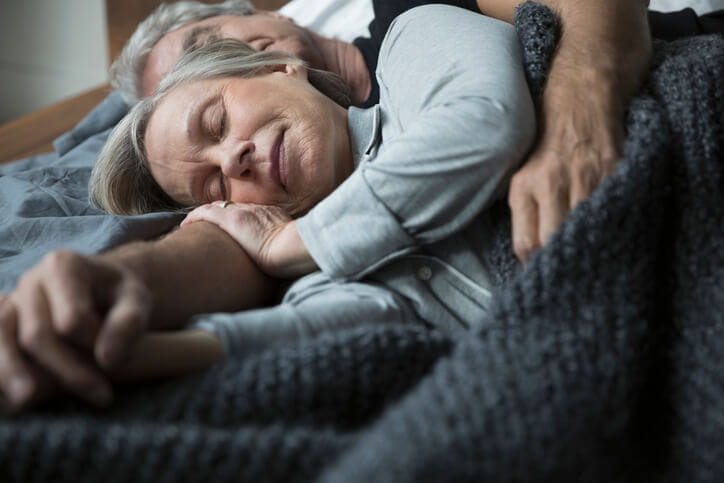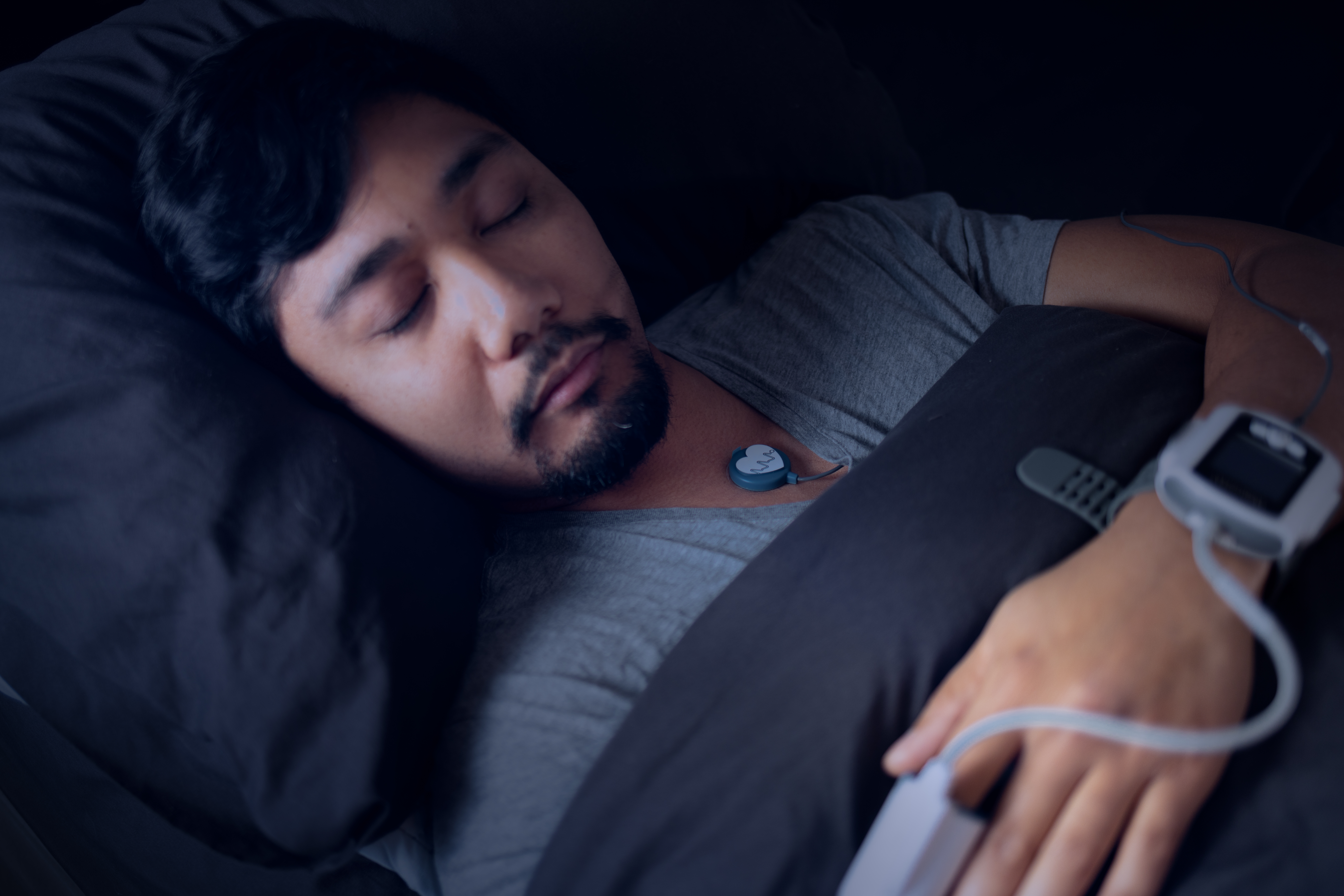Sleep Cycles and Stages of Sleep

While sleep may feel like one long period of unconsciousness, perhaps broken up by some dreams, it’s actually more complex than that. There are different stages of sleep and sleep patterns or sleep cycles that everyone goes through. People who are interested in the subject will often ask things like, “How many stages of sleep are there?” or “Why do people’s eyes twitch when they sleep?” While we don’t fully understand every aspect of sleep, researchers have learned a great deal over the years.
REM and Non-REM Sleep Stages
| Sleep Stage | Average Duration per Cycle |
|---|---|
| Stage 1 (Non-REM) | 5–10 minutes |
| Stage 2 (Non-REM) | 10–25 minutes |
| Stage 3 (Non-REM) | 20–40 minutes |
| REM Sleep | 10 minutes (first cycle), up to 60 minutes (last cycle) |
There are four stages of sleep: stage 1, stage 2, stage 3 and what is called REM (rapid eye movement) sleep. Because they don’t involve rapid eye movement, the first three stages are referred to as non-REM or NREM sleep. The different stages of sleep tend to last approximately 5-10 minutes, with the REM period lengthening as the night progresses.
Stage 1: This is the lightest stage of NREM sleep. Brain wave activity begins to slow, and the muscles relax. Slow eye movements may occur. People wake easily if disturbed during stage 1.
Stage 2: This stage of sleep is also relatively light. Brain waves called spindles and K complexes, which are thought to help prevent waking, occur during this stage. The heart rate slows, and body temperature decreases as the body prepares for deep sleep.
Stage 3: This is what is known as deep sleep. It’s harder to wake someone from this stage and doing so may result in them feeling groggy and disoriented. The body performs “maintenance” during this stage.
REM: Most people have heard of REM stage sleep, and will ask, “What is REM sleep?” This is when dreaming occurs. The eyes move rapidly from side to side during the REM cycle, and brain waves are more active than in the other stages. As with deep sleep, someone who wakes during the REM sleep cycle may feel groggy.
How Long is One Sleep Cycle?
How long is a sleep cycle? Typically, it lasts 90-110 minutes, with each person’s sleep patterns and sleep cycle length being somewhat different. Understanding the sleep cycle can be helpful. For example, people who take a “power nap” and want to wake feeling rested should do so at the end of stage 2 and before moving too far into stage 3.
What is Deep Sleep?
What is the deepest stage of sleep? Stage 3. Deep sleep is the most restorative phase. During deep sleep, there is no eye or muscle movement. The body grows and repairs tissue, adds muscle, builds bone and refreshes the immune system during this period. It’s also when the body builds up energy for the next day. Events like sleepwalking, talking in one’s sleep and night terrors occur during deep sleep.
How Your Sleep Cycle Changes with Age
As we age, we progress through different sleep patterns and sleep cycle stages. They include:
Infants (Approximately 4 months – 1 year):
During this period, there are no distinct sleep waves. Instead, sleep is characterized as “quiet,” “active,” or “indeterminate.” Infants spend most of their time in active sleep, which allows them to wake regularly and easily for feedings.
Toddlers (1 year – 3 years):
Toddlers average 9-10 hours of sleep in a 24-hour period. Approximately 25 percent of this time is spent in stage 3 (deep sleep), with an equal REM sleep cycle length.
Pre-School (3 – 6 years):
A preschooler’s 9-10 hours of sleep continues to have a high relatively high amount of stage 3 time. The afternoon nap common with toddlers begins to drop off.
School Age (6 years – 12 years):
Restorative sleep remains a priority for growing children, so stage 3 continues to account for 20-25 percent of sleep time in school-age kids. The average sleep time remains at 9-10 hours.
Adolescent (12 years and beyond):
Adolescents sleep 9-9.5 hours per 24-hour period. Physiological changes during this period cause a later onset of sleepiness and later waking in the morning. As a person moves into adulthood, the circadian rhythm shifts and 7-8 hours of sleep starting somewhat earlier becomes the norm.
Learn more about the services provided by the Baptist Health Sleep Center.



